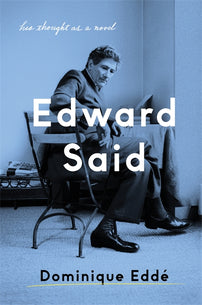‘If I’m dreaming, don’t wake me up’
The Lebanese novelist and essayist Dominique Eddé expresses her amazement at a movement that ‘gives visibility and voice to a people in whom no one believed any more’: a Lebanese people united in solidarity

This is not a political analysis. It is an expression of wonder combined with great concern. Just as one day can change the meaning of a life, since 17 October Lebanon has been living through hours that may give it more meaning than it has ever had before. But may also expose it to much suffering before achieving this.
For reasons that have yet to be analysed, the foreign press has been slow to take the measure of this event’s historic nature. A full quarter of the population came out to demonstrate, in every city in the country, giving visibility and voice to a people that everyone dreamed of yet no one believed in anymore. (‘Everyone’ except, of course, the gangsters who had taken them hostage.) Not just a huge crowd determined to no longer let themselves be fooled by a state that has been abusing and strangling them for decades. Not just angry people determined to claim their rights. But a human crowd, fundamentally human, within which differences are freely declared and expressed, differences that enrich one another, creating and revealing an unprecedented bond.
[book-strip index="1" style="buy"]It is as if hundreds of thousands of solitary people had discovered at the same time, after an endless hibernation, that they were not alone. Not alone in watching helplessly as the leaders of their communities robbed their destinies, not alone in losing their jobs, studying for nothing, or not having the means to do so, not alone in starving, not alone in feeling humiliated at belonging to a country that did not belong to them. Not alone in finding words – and this is their great strength – to laugh about all this after having cried. Not alone in having survived on next to nothing without losing sight of life. All these signals of recognition appeared at the same time, bringing together, like the five fingers of a hand, hundreds of thousands of individuals prepared, without knowing it, to constitute a people.
A choir without a conductor
And instead of the union of this people abolishing differences, as usually happens in a mass, it feeds on them, is based on them and declares – well beyond Lebanon’s borders – that it is possible, indeed exciting, to live together on the basis of all kinds of beliefs, appearances, styles of dress, communal identities. In this great mingling, young women and old, bareheaded or veiled, are making themselves heard with an unprecedented strength and freedom.
It is not a monolithic population in a state of euphoria or blindness that has taken to the streets, rather an incalculable number of Lebanese just as they are, of all classes and religions, and just as those in power refused to see them – members of a single nation, their voices blending in a perfectly audible and coherent choir. A secular choir, and moreover, one without a conductor. Only the Lebanese flag flies above the sea of heads. No political party, no political leader, has joined the dance.
The Lebanese diaspora, for its part, took to the streets all over the world to provide support. Something has happened and is still happening that has escaped the grip of the vicious circle of manipulators who have laid low this country and the entire region. We may be rightly concerned that a moment may come, perhaps very soon, when all this beauty will be robbed of its victory by the potential for horror to which political and military powers here have accustomed us, both within and across our borders. But whatever happens, this beauty has already been laid down as an unforgettable memory and, on this foundation, as evidence and lever of change, regardless of when this happens.
Freedom from clan leaders
The Lebanese people have shown that there is such a thing, that they are not just a magma of individuals divided in so many ways, that a large part of them – certainly not all but a very large part – are determined to free themselves from clan leaders who draw their common ground for enduring and enriching themselves from the maintenance of religious divisions. A jubilant youth has arisen from the present to accuse the past, to tear the future from its clutches, reset the clock and impose a time of urgency against the time of usurpation. This youth may be crushed or sabotaged, but we can no longer pretend that it does not exist.
The prime minister’s statement on 21 October was a clear sign of this awareness.[1] The long and confused list of stop-gap measures said, in a nutshell: we have screwed up and we’re scared. The Lebanese street has perfectly embodied the double meaning of the Arabic word wahdé that means both loneliness and union. In this sense, it is the child of the Arab streets that awoke in 2011, but also the vanguard of a universal road that is being sought at this moment from one end of the planet to the other: one of lonely individuals in solidarity. ‘If I’m dreaming, don’t wake me up,’ said a demonstrator yesterday. His words express what millions of us are feeling here.
Dominique Eddé is a Lebanese novelist and essayist, and the author of Edward Said, His Thought as a Novel (Verso, 2019).
Originally published by Le Monde.
Translated by David Fernbach
[book-strip index="2" style="buy"][1] [Saad Hariri resigned on 29 October, but the protest movement is still under way, and now calling also for the resignation of president Michel Aoun.]
